Melina Tassou
Following her studies in Bordeaux, Melina Tassou went on to work for distinguished French wineries and did a stint in Australia before returning to Greece and dedicating herself to the Domaine Kikones estate in Thrace, northeastern Greece. There, she has produced excellent wines from Chardonnay, Malagousia and Syrah, all defined by an elegant, Burgundesque, I would say, quality.
She sums up her philosophy as seeking to intervene as little as possible in the viticultural and vinification process, with the aim of minimizing the use of sulfur in order to achieve a more natural result. Her driving vision is to earn Kikones a place in the international wine market.
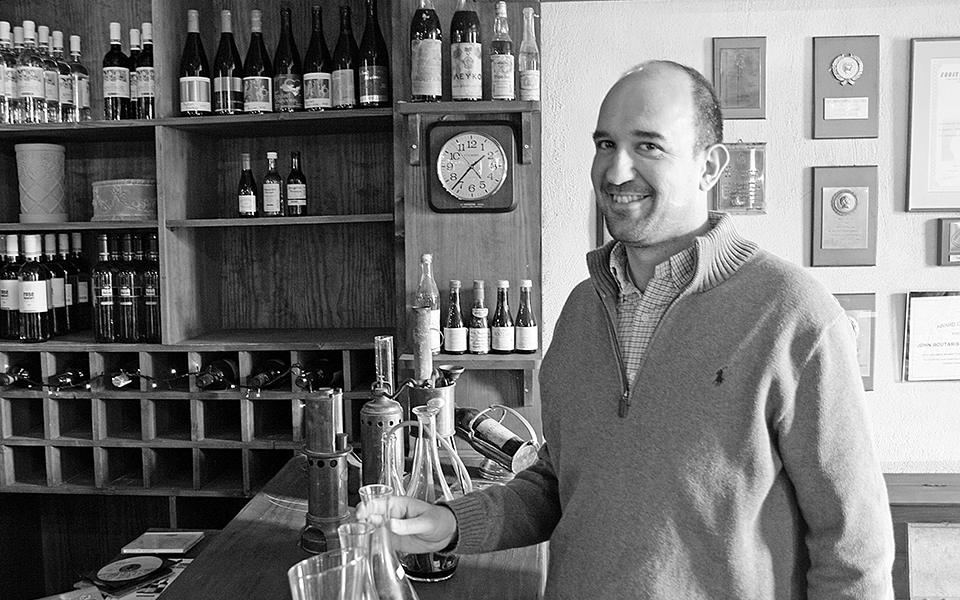
VASILIS GEORGIOU
Following postgraduate studies at the University of Adelaide and several harvests in Australia, Vasilis Georgiou took over as chief enologist at Boutari Wineries in Naoussa, northern Greece, in 2007. He believes that a comprehensive understanding of the grape and the vineyard from which it comes is key to the winemaking process, so that the style of wine he envisions can be produced with the minimum of intervention during aging. He believes that the day will come when Greece earns its place among the world’s most distinguished wine-producing countries. Until then, he takes pride in his signature wine, the first super premium red from the unique vineyards of Naoussa, the 1879 Legacy Boutari, which emerged from a series of vinification experiments using grapes from different parts of the region.
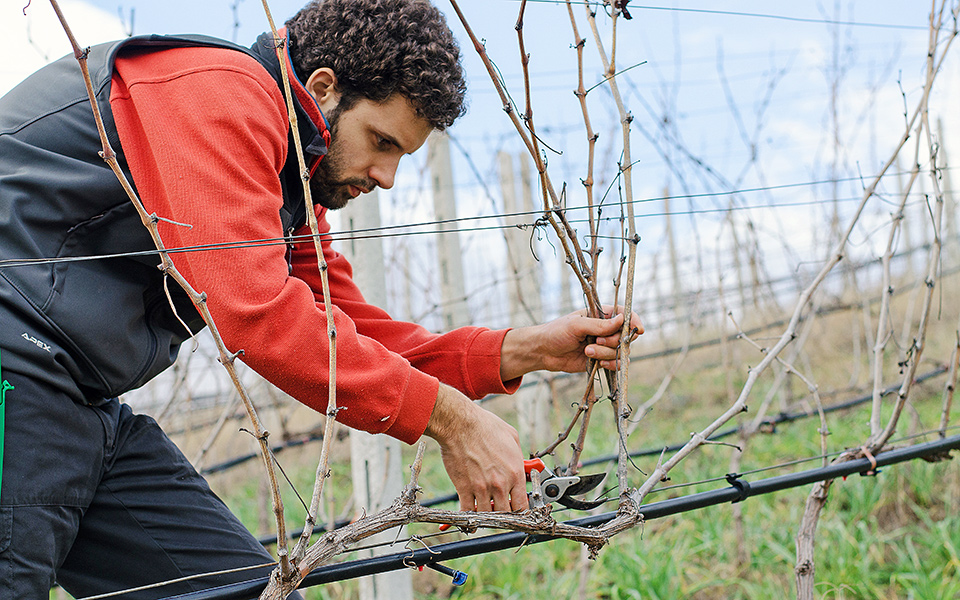
Kostis Dalamaras
A fifth-generation winemaker and the youngest on our list – he is not yet 30 – Kostis Dalamaras has brought a breath of fresh air to the Naoussa region. With studies in viticulture and enology in Burgundy, he became involved in the Dalamara family estate in 2007, placing the business, which started out in 1840, in a new league within four years. A true believer of organic practices and the limited use of pesticides and fertilizers, his goal is a pure expression of the terroir. He achieves this by trying different fermentation methods and also by leaving the wines unfiltered so that they maintain as much of their complexity as possible. His signature label, the dry red Paliokalias, is defined as a contemporary traditional wine with a solid structure that allows it to age in the bottle for years. He believes that Naoussa needs “new players, plenty of plantings and, of course, hard work at the highest level.”
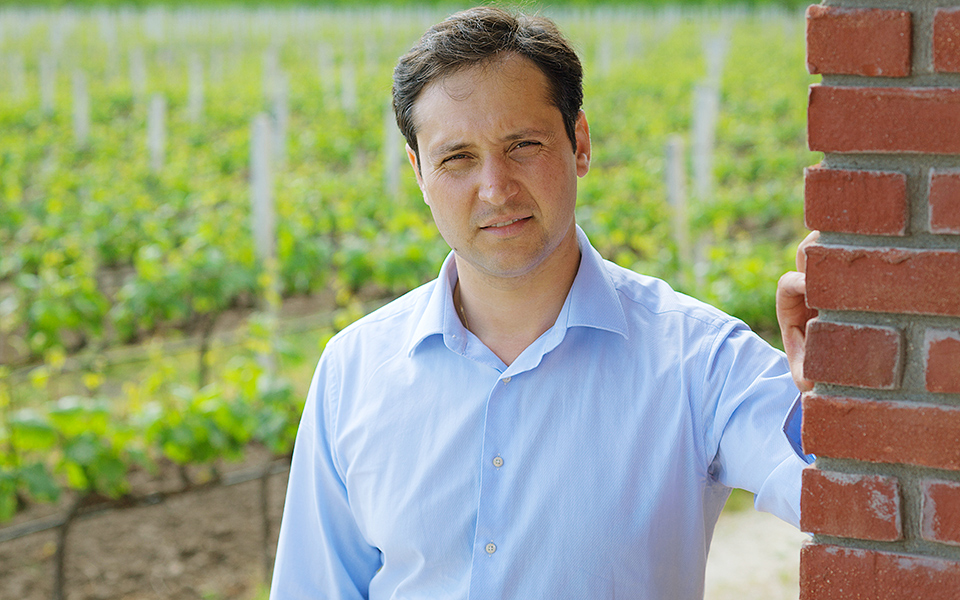
Christos Zafeirakis
Hailing from a family of winemakers in Tyrnavos, central Greece, and with studies in Italy, Christos Zafeirakis has solid views about winemaking and has emerged as one of the most exciting players in the business. In the past few years he has succeeded in building the Domaine Zafeirakis brand and putting it firmly on the Greek wine map, mainly through the exceptional and award-winning red Limniona, but also with wonderful whites made with Malagousia and Chardonnay. In a nutshell his philosophy is that you should never bank on volume, not even in the barrel, but on texture so that every sip is like a soft caress. His efforts are currently focused on growing the reputation of the Limniona variety and producing wines from different terroirs in Tyrnavos, always guided by his commitment to one thing: finesse.
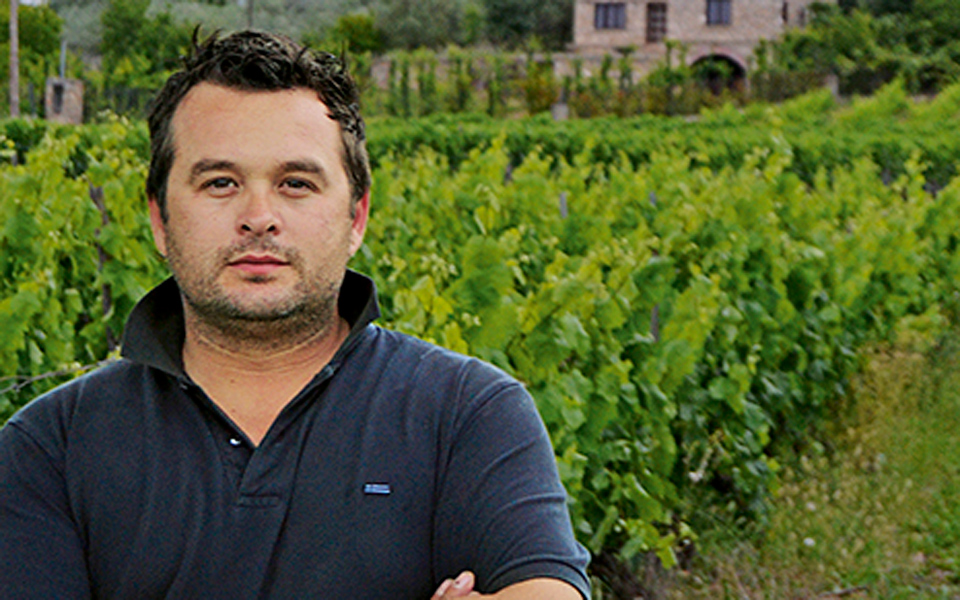
Apostolos Thymiopoulos
Born during the harvest in 1978, Apostolos Thymiopoulos is considered one of the stars of Greek winemaking. A man of many talents, he is credited with having shifted the flavor tone in Naoussa with his wine Ghi kai Uranos (Earth and Sky) by achieving that elusive combination of a strong tannin structure with a rich palate and fruity depth. His style is considered edgy, as he pushes to the extremes both in viticulture and winemaking in order to bring out the terroir in every final product. His immediate goal is to produce wines in other areas with remarkable vineyards, but also, further in the future, to establish Greek varieties from specific areas on the international wine map.
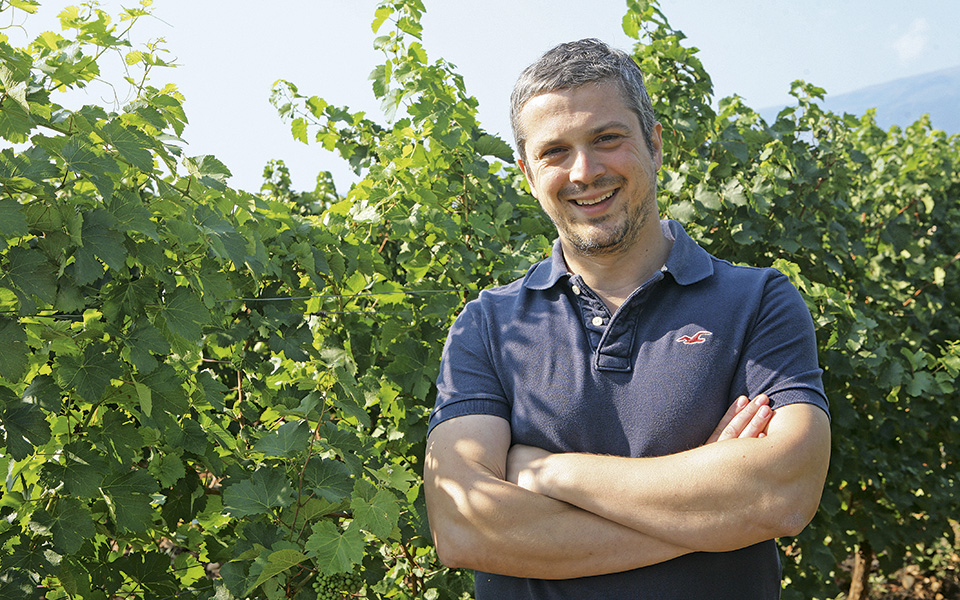
Nikos Karatzas
Modest in words but expressive in his actions, Nikos Karatzas started out his career at Ktima Pavlidis and, a decade on, has put his signature on emblematic wines such as Thema and Emphasis. His sights are now set on bigger things such as working with vines that are older than he is, participating in efforts to produce authentic wines and, mainly, helping make better wines from native Greek varieties. “My professional philosophy is the same as my guiding principle in life: honesty. Clean wines, with character and harmony, that express the vineyard from which they came. That is my goal.”
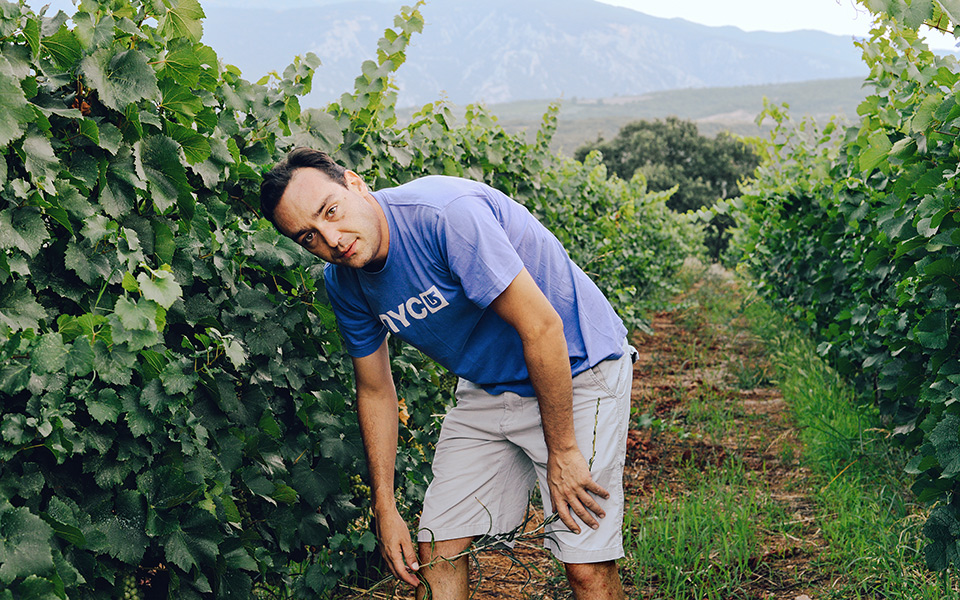
Evripidis Katsaros
Born in Larissa, central Greece, in 1979, he studied in Bordeaux and then Burgundy, where he trained at the acclaimed wineries of Domaine Roulot and Domaine Georges Roumier. He returned to Greece to take over the family estate, Domaine Katsaros, on the foothills of Mount Olympus. Producing fine wines is all about “getting in right in the vineyard,” he says. His ambition is “to help Greek wine gain an even better reputation abroad and earn the place it deserves with my wines.” His exceptional Chardonnay, using vinification methods adopted in Burgundy, has set the bar for great Greek whites.
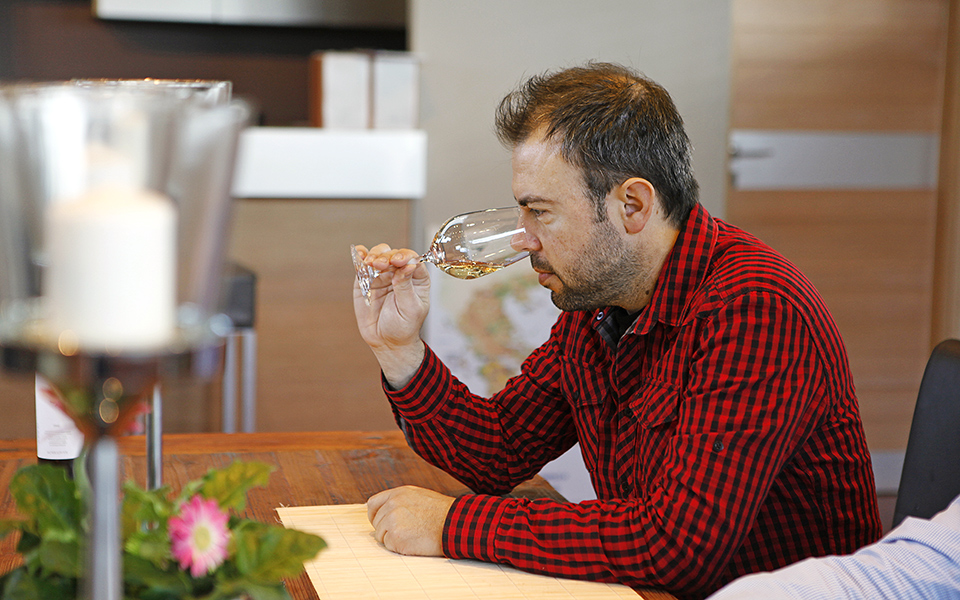
Stamatis Mylonas
Having worked at the family winery since he was a boy and without missing a harvest since his teens, Stamatis Mylonas took over the business in 2006 and shifted its focus to quality wines. In 2014, his Savvatiano took the coveted gold at the Decanter World Wine Awards, earning Mylonas Wines a spot among the rising stars. His ambition is the “complete comeback” of Savvatiano, while he also aims to explore the further potential for a great wine from this variety, which is prolific in the vineyards of Attica. After testing different vinifications in amphorae, he is now experimenting with a sparkling Savvatiano made in the conventional manner.
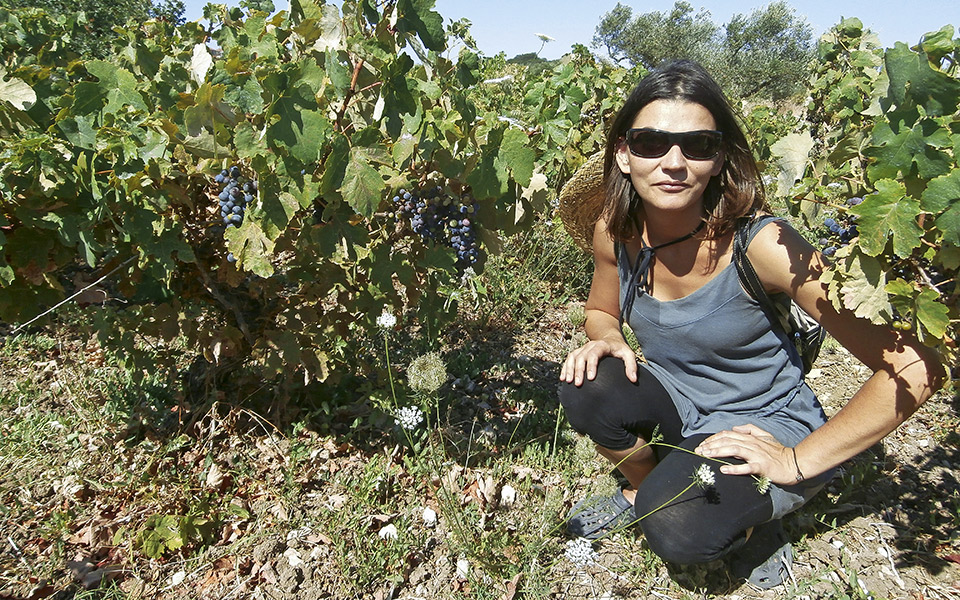
Kiki Siameli
An Athens Technical College graduate, Kiki Siameli has been doing stellar work for the past decade at Melissinos, a boutique winery on the island of Cephalonia, that produces just 15,000 bottles a year. She has reintroduced forgotten varieties like Zakynthino, added a new dimension to Robola by presenting it in its natural version and produced an exquisitely concentrated Mavrodafni. Detail-oriented and a perfectionist, she is not afraid to try new things and test her mettle away from the beaten path, putting all of her efforts into the promotion of varieties that are native to the Ionian island. “Cephalonia has a lot of secrets related to the production of wine that are waiting to be revealed,” she says, promising even more authentic wines with bold characters in the future. “Every one of my efforts is aimed at showcasing them.”
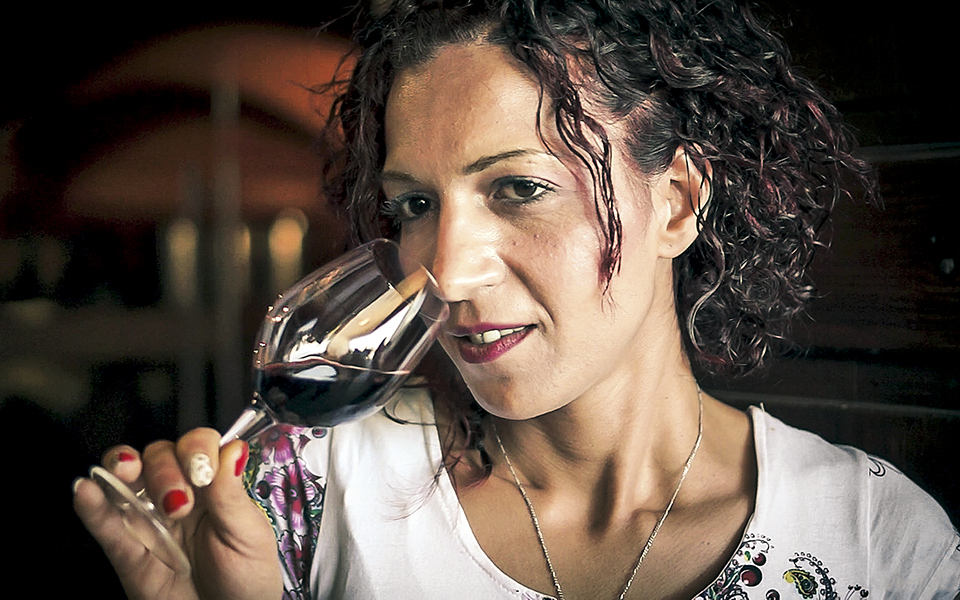
Myriam Ambuzer
An enologist at the Lyrarakis Wines estate since 2002, Myriam Ambuzer conducted her first harvest in Spain. That was where she met her mentor, Pepe Mendoza, who gave her a baptism of fire and taught her that wine is passion and the harvest both an act of love and a battle for life. She went on to do excellent work in Crete, securing Lyrarakis a place in the island’s elite wineries by producing wonderful wines such as Dafni, Thrapsathiri, Vidiano and Vilana. Her philosophy is all about expressing authenticity in wine and achieving harmony without resorting to a recipe book, arguing that every grape and every wine needs to be worked in its own special way, every year. Myriam envisions a biodynamic wine that will represent the power of the Cretan terroir and a link to the island’s history. Her signature wine is Vilana, fermented in the estate’s barrels.
And the others…
The list does not end here, as there are still plenty of winemakers who are just a few years above the “young blood” category, such as Dimitris Akrivos (Gaia Wines), Nikos Douloufakis (Douloufakis Winery), Panagiotis Papagiannopoulos (Tetramythos) and Antonis Kioseoglou (Ktima Kir-Yianni). There are also several representatives of the new generation who, I am confident, will soon be the talk of the town. Remember their names: Dioni Samara (Porto Carras), Elsa Picard (La Tour Melas), Giorgos Diamantakos (Domaine Diamantakos), Zacharias Diamantakis (Dimantakis Winery), Markos Markovitis (Markovitis Winery) and Louiza Dougou (Dougos Winery).











